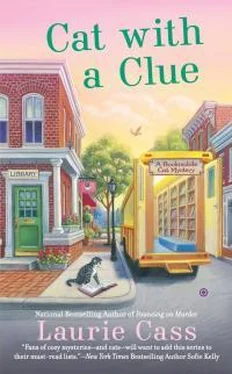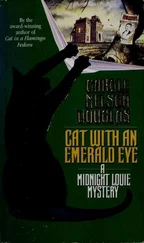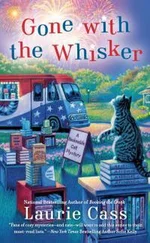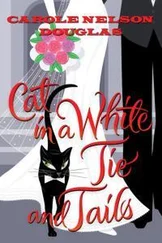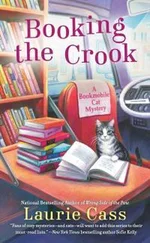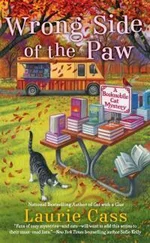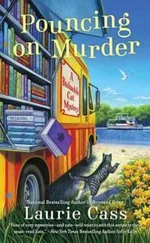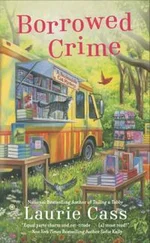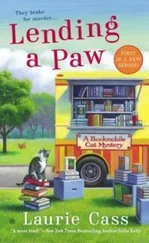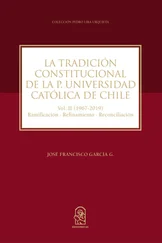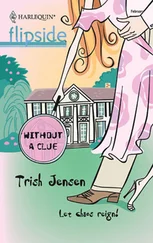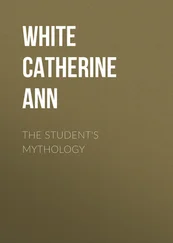I’d met these two clowns last summer when Barb had run in front of the bookmobile, waving me down because her husband was having a stroke. We’d raced him to the hospital, and it wasn’t until I was relaying information to the emergency room via my cell phone that I realized the sick man was none other than the painter Russell McCade, known as Cade to his thousands upon thousands of fans.
Though his critics dismissed his work as sentimental schlock, his fans—which included me—defended it as accessible art. I’d loved his work from the time I’d received a birthday card illustrated with one of his paintings, but had never dreamed I’d actually meet the artist, let along become a friend of the family via a hospital visit and the letter D .
For reasons lost in the mists of time, the McCades had a habit of randomly choosing a letter and then finding words starting with that letter to fit the ongoing conversation. When I’d joined in the game the first time, I’d gone to visit Cade in the hospital, and our acquaintanceship moved into firm friendship. Who cared if they were twenty years older than I was? Who cared if they spent six months out of the year in a place that was warm and sunny? As long as we had the letter D , we were good.
“Pathetic,” Cade said, sighing.
Or the letter P , which was also an excellent word starter.
“Penny for your thoughts?” I asked. “What’s pathetic?”
“A pound would be better. There are profound thoughts up here.” Cade tapped his head.
I searched madly for an appropriate P word, but couldn’t find one anywhere.
“He was talking about you, Minnie,” Barb said. “And you’re not pathetic. You’re preoccupied; that’s all, right?”
Cade started studying me, and I felt myself squirming. Every time he looked at me like that, I was afraid he was thinking about how I’d look on canvas. Though I’d made it perfectly clear that I had no interest in being the subject of a portrait, I wasn’t certain he’d paid any attention to me.
“There’s a lot going on right now. The bookmobile, the library director, not to mention . . . well . . .” I glanced around.
We were in Petoskey, eating at the City Park Grill. One of its claims to fame was that it had once been the hangout of Ernest Hemingway, which was nice enough, especially if you were a Hemingway fan, but what I cared most about were the buttery garlic biscuits served as an appetizer. Warm, buttery garlic biscuits, moved with tongs from serving platter to your own individual biscuit plate by a server who would bring more; all you had to do was ask.
The McCades and I were sitting in the back of the restaurant. Cade wasn’t exactly a recluse, but he didn’t make any efforts to be a noted celebrity, either—much to the dismay of his agent—and I was happy enough to sit in the back corner, where it was a little darker and far quieter. From the six-figure couple, we were hearing an occasional tone of frustration from the man and a sporadic “Bob!” from the woman, but other than that, all was peace and calm. She looked vaguely familiar, and I surreptitiously studied her for a few moments, trying to figure out where I’d seen her before.
“The break-ins,” Barb said.
“And the murder of Andrea Vennard, a former resident of Chilson,” Cade added. “There is indeed a lot going on.”
“You two were out of town when most of that happened.” In Chicago at a show of Cade’s work, specifically. “How did you know?”
“The newspaper,” Cade said. “It’s a marvelous invention. You should try it someday.”
Barb shook her head, making her ponytail of graying brown hair flick around the sides of her neck. “Don’t believe a word he says. He heard it from the neighbors first, then dug through the papers afterward.”
“Corroboration.” Cade sipped at his beer, a draft from Short’s Brewing Company that was so hoppy I could smell it from across the table. “One must have corroboration.”
Suddenly I remembered where I’d seen the six-figure woman. She’d been the woman at the used-book store, haggling with the clerk over books she was trying to sell.
“Does that detective have any ideas?” Barb asked.
“All avenues . . .” I said, then stopped.
Cade set his beer on the table with a sharp bang . “All avenues of investigation will be explored, especially wide-open and freshly paved avenues that could easily lead to the wrong person.”
“Sorry,” I murmured. Cade had been the lead suspect in a murder investigation last summer. “I didn’t mean to bring up bad memories.”
“Not bad,” he said, “so much as annoying.”
I glanced at Barb and, judging from the tight expression on her face, I wasn’t sure she agreed with him. “Anyway,” I went on, “Detective Inwood and Ash aren’t telling me much. It is an active investigation.”
“Ah, but you have some ideas, don’t you?” Cade eyed me. “You are full of the things. Ideas ooze out of you.”
I made a face. “Ooze? You make me sound like a mud puddle.”
“Flow? Gush? Emanate?” Cade asked. “Exude. Escape. Discharge.”
“Oh, ew.”
“Percolate,” Barb said.
“Excellent!” Cade exclaimed. “And a P word to boot. You win this round, my darling.” He toasted his wife. “And now,” he said, turning to me, “your idea. No denials; I can see it in the set of your shoulders, and slumping like that will not change the facts.”
I sighed and straightened. It wasn’t fair that a man who’d grown famous painting landscapes could see into my head by looking at my posture.
“And now, young lady, it’s time to share.” Cade made a come-along gesture. “What’s your idea?”
“It’s about books.”
The McCades frowned, exchanged a quick glance, then looked back at me.
“What’s about books?” Barb asked. “The break-ins or the murder?”
“Both.”
“How do you figure that?” Cade asked.
I looked at him closely, but saw no trace of the Patient Look, the expression that meant I was being humored and coddled and been found amusing in a condescending way. My previous boyfriend had used that expression too often, and I was still sensitive to its use.
“There were three break-ins,” I said, holding up the requisite number of fingers. “The Friends’ book-sale room, the bookmobile, and Pam’s antiques store. During each incident, every book was tossed onto the floor, but according to the records of both Pam and the bookmobile, no book was stolen.”
“And the book-sale room?” Barb asked.
I shrugged. “No way of knowing. They don’t need to track books the way we do. But someone was clearly looking for something, and since the bookmobile and Pam’s store were both broken into after the sale room was, I figure he didn’t find whatever it was.”
“Or she,” Cade murmured.
“Or she,” I agreed, a little chagrined that a male had had to correct my gender usage.
Barb frowned. “But what about Andrea Vennard? How does she fit in?”
“That’s when it all started,” I said in a low voice, leaning forward. “Andrea was killed. Then the library was broken into, then the bookmobile, then Pam’s store. In a town this size, it’s hard to believe that all those crimes aren’t connected somehow. My guess is that someone is looking for a book worth a lot of money, and Andrea got in the way. Maybe,” I said slowly, thinking of a new possibility, “a book that’s been in a family for a long time and no one realizes its value.”
“Isn’t there a new used-book store?” Cade asked. “Have they had a burglary?”
Ash had told me that they’d been incident free, and I told the McCades so.
Cade sipped his beer. “You think Andrea’s murder was committed by the same person who’s responsible for the break-ins.”
Читать дальше
